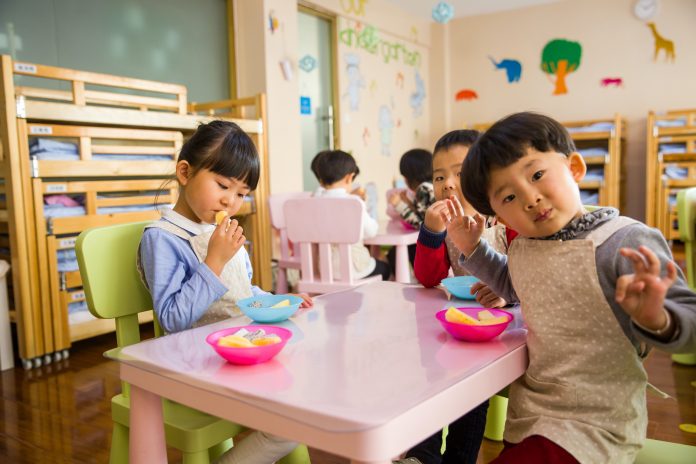It is no secret that children love to play. After all, it is their way of exploring the world and learning new things. Nonetheless, many parents choose to support their children’s curiosity and take advantage of their developing brains by teaching them. Beyond giving their kids reading and counting lessons, some parents enroll them in music, art, or dance classes. After all, these extra skills could be helpful to kids as they grow up in an increasingly competitive environment.
But the changing landscape of life and work could also affect the skills demanded from children in school, and later on, in the office when they become adults.
Enter soft skills.
Defined as non-technical skills such as behaviors and attitudes that enable an individual to work and interact successfully with others, soft skills are vital in this day and age. The workers and leaders of today and of the future will be expected to master soft skills.
Soft skills include the following:
-
Communication and negotiation skills -
Empathy and interpersonal skills -
Leadership and management skills -
Entrepreneurship and initiative-taking -
Adaptability and lifelong learning skills -
Teaching skills
Why are soft skills important?
Soft skills have always been a part of our lives. As social beings, we use them every day and we develop them from a young age. They can define our relationships and even make or break our careers. We continue to hone our soft skills even as we become adults.
But why have they become more important today?
The short answer is the changing job market.
Technology has been playing a bigger role in our lives lately. Tasks ranging from house chores to officework are done with the help of machines. According to global consulting firm McKinsey, 10 to 15 years from now, these technologies will radically transform the workplace as companies become more reliant on machines. This shift will also demand a new set of skills (i.e., soft skills).
In other words, people need to capitalize on skills that are uniquely human, especially communication and empathy. These skills greatly influence employees’ mindsets, leaders’ attitudes, and companies’ cultures overall.
What soft skills do children need?
Children are never too young to learn, even when it comes to soft skills. In fact, children are taught skills like sharing and communicating their feelings properly, without kicking or yelling. The following is a list of soft skills that a child needs to develop along with suggestions on how these skills can be taught.
- Presentation and speaking
From school presentations to business reports, good speaking skills are necessary. In fact, even when communicating with parents or peers, children need to know how to properly express their feelings. Communication skills are important even as new ways of learning are being introduced due to the pandemic. Even during remote learning or mobile learning, students will be asked to discuss their opinions verbally. So, presentation and speaking skills should be practiced early.
A good way to do this is to let children talk about their thoughts and ideas in front of their family members. For example, asking kids questions during meals can help them practice expressing their ideas clearly. To help children be more confident about stating ideas, give them a lot of praise and encouragement. More often than not, adults fear public speaking because they did not receive guidance and compliments in their youth.
- Teamwork
As soon as children enter school, they will be asked to do tasks in pairs or groups. Even games require kids to play in teams. Naturally, children will have a hard time cooperating with each other in the beginning. But with guidance, they eventually learn how to play and work together.
At home, kids can be given collaborative activities such as making structures out of building blocks. That way, children will learn how to share ideas and help each other to achieve a goal.
- Problem solving
Solving a problem is not always as easy as finding the value of x in Algebra. Real life is full of problems that require deep thinking. Observation and analysis are crucial to coming up with solutions. Not letting children struggle with anything can be counterproductive. Sometimes, children need to face challenges alone. Then again, the level of difficulty should be appropriate.
Apart from letting children solve puzzles and play problem-solving games independently, it is also necessary to help them assess a problem. Ask children to identify problems, such as their challenges in school. Classes that challenge children to think critically are also recommended. It’s a bonus if the skill can give them an advantage later in life. For instance, a beginners’ coding class prepares young programmers for web design, which is in demand right now.
- Decision making and leadership
Making decisions and solving problems are not exclusive for adults. Children can and should also learn how to decide. Decision making involves weighing options and anticipating the results of an action. To help children make better decisions, play a game of “Would you rather.” But instead of just letting kids choose whatever they like, ask them about the reasons behind their choices. Replace this game with anything that requires a child to choose, and follow up with “why.” By helping kids make good choices, they can become excellent leaders.
- Resilience
Though the competitive nature of school and work is unchanging, children should be reminded that it’s okay to make mistakes and fail. Additionally, when they encounter big challenges, children should know that asking for help is good.
Children might find it difficult to manage their anger and disappointment, so parental guidance is crucial. Kids should learn not to hurt others and themselves even when they feel bad. More importantly, they should know that their failures are temporary.
Conclusion
In a world dominated by computers and machines, soft skills such as communication and interaction are even more important. Young as they are, children need to develop these skills in order to become better students, workers, and leaders.
By


















